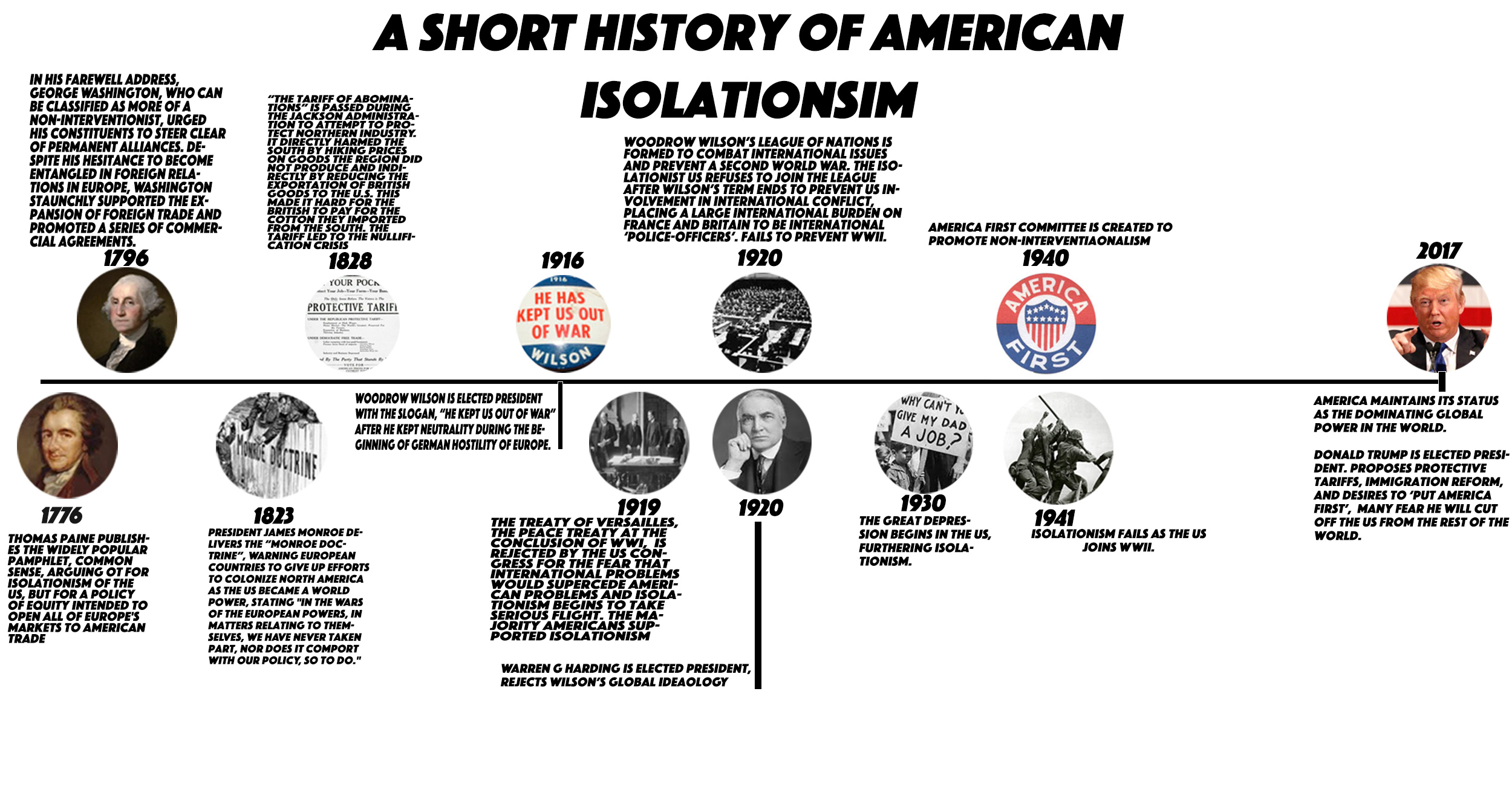‘America First’ has precendents in isolationism

If you asked President Donald Trump if he was an isolationist, you would almost certainly hear a defensive “No!” Trump is a president who has continually emphasised his desire to put “America first,” a belief rooted on restoring American prosperity instead of becoming involved in foreign interests due to the worry of foreign interest superseding and domestic interest.
Trump’s policy seemingly includes typical isolationism philosophies, including opposition to alliances and free trade. His recent executive order on the ban of immigration and travel from seven Middle Eastern countries has renewed the fear that Trump’s policies will slowly cut the United States off from the rest of the world. It has become a rising concern that America’s global business ties will be severed as Trump proposed a 20 percent tariff on Mexico, and he has a track record for opposition to trade deals such as NAFTA, a 1994 trade accord that abolished tariffs between Canada, Mexico and the United States.
While these propositions have good intentions to “put America first” (a similar slogan used by isolationists following World War I) and protect American workers, 6 million jobs in the United States depend on trade relations with Mexico alone, and many fear that tariffs and immigration restrictions would only further the existing tensions with other nations and further cut the United States off from it’s position in the global economy.
Free trade policies have allowed the US to rise to become the dominating nation in the global economy. High tariffs increased the price of imported goods, causing domestic manufacturers to charge higher prices.
Isolationism in America is nothing new, and can be traced as far back as 1776, and it has come and gone in favor, as in it’s fast rise to prominence in the 1920s. Trump’s propositions do have potential for success, but many argue that the isolationism and tariffs will destroy the international markets.
For Trump’s trade and foreign policies to truly meet their intentions and achieve the desired success America needs, a comprehensive glance at how similar policies in the past have worked needs to be examined.









You must be logged in to post a comment Login